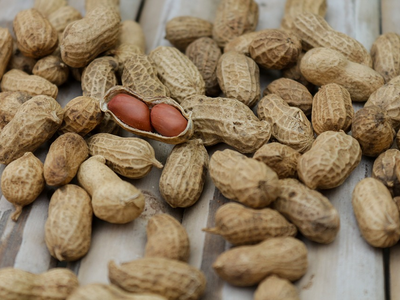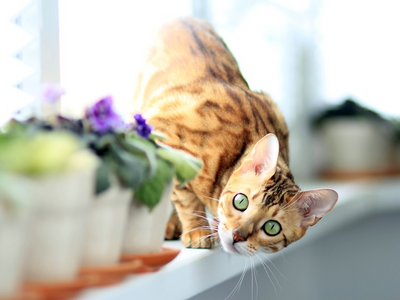04.04.2022
The best Asian cat food for your exotic feline
Asian cats are a gregarious, friendly hybrid felines that love family life. Also called Malayan cats, they are known to be relatively low-maintenance, but their diet needs to be carefully controlled to make sure you keep your feline healthy and happy.
As a breed, Asians are not usually fussy or sensitive, so you have a wide range of suitable food available—you can choose between dry, wet, semi-moist, or raw nutrition.
With such a loveable breed, though, you may decide that “adequate” food is not enough and that your Asian deserves the best. What is the best Asian cat food? Carry on reading and, all will be revealed!

Exotic friends!
Source: Chillshewa
Helping your Asian with the right food choice
Good nutrition is the key to your Asian’s long-term health and happiness.
Food for cats should be based on their natural diet, which harks back to their heritage as hunters. Wild cats hunt and eat up to 20 times a day, with their diet consisting of:
A cat’s diet needs to be made up of:
- Animal protein
- Animal fat
- Almost zero carbs
- The correct balance of vitamins and minerals

Only the best animal protein is good enough for your Asian cat!
Image (c) Untamed
Animal protein—the most important nutrient!
Meat provides cats with the amino acids—such as taurine—needed to provide energy, build muscle, and maintain organ function. Cats can’t get what they need from plant protein alone, and there is no such thing as a healthy vegan feline.
The better the quality of meat that your Asian eats, the more you will be able to:
- Reduce shedding
- Keep weight under control
- Avoid UTIs
- Keep the digestive tract functioning well
The quality of animal protein sources is measured by how efficiently cats can metabolise them. This is known as the biological value (BV) of a protein source, and the BVs of the most common proteins found in commercial cat food are:
|
Protein type |
BV |
|
Animal protein, including: |
88%–98% |
|
Vegetable protein, such as: |
45%–68% |
Even the best plant protein is nowhere near as digestible for your Asian as a source of meat. Your cat food should ideally be made of a high proportion of protein with a BV of 90% or more.
Animal fat makes cat food taste amazing
As well as being a secondary source of energy, animal fat—such as that found in good cat jelly or gravy—provides cats with essential fatty acids, such as:
- Arachidonic acid
- Linoleic acid
- Omega-3 and omega-6 acids
Animal fat has the added benefit of tasting great for felines—any food rich in animal fat is likely to be wolfed down.
Ditch the carbs!
Cats don’t need carbs as part of their diet.
Carbs are often used by cat food manufacturers to bulk a product up or enhance the taste of low-quality wet or dry food but offer no nutritional value for your feline.
Much worse, too many carbs in your Asian’s diet can lead to:
- Obesity as unburnt carbs are stored as fatty cells
- Diabetes and pancreatitis as your feline struggles to manage blood sugar levels
The correct balance of vitamins and minerals is super important
Your Asian needs vitamins A, B complex, D, and E in their diet, as well as minerals, such as:
- Potassium
- Phosphorous
- Magnesium
- Calcium
- Zinc
- Manganese
- Iron
Meat from muscles and organs provides the correct proportions of all the micronutrients your Asian requires.
In the wild, cats will occasionally supplement their hunting with the odd nibble of grass or plant material. Good cat food should mean your Asian doesn’t need anything extra.
Is Untamed good for Asian cats?
Untamed is exactly what your Asian cat needs to flourish.
Made of the finest ingredients, Untamed recipes—like Chocka Chicken, Tuck-in Tuna, or Full-on Fishy—give your Asian:
- High levels of only animal protein—Untamed products contain twice the amount of animal protein typically found in commercial cat food, meaning your Asian will get all the energy and nutrients needed in a small portion and without having to overeat or feed continuously
- Vet-formulated meals—Having started out as homemade food, each Untamed recipe has been honed by vets to be exactly what your Asian needs, free from known allergens, sugar, and grains
Untamed is also committed to a healthier planet for your Asian to enjoy. As a company, we work ethically by:
- Only sourcing ingredients from sustainable, cruelty-free suppliers
- Ensuring our packaging is 100% recyclable
- Committing to operating as a carbon-neutral manufacturer
The best thing you can do for your Asian cat is to try Untamed today!

Health and happiness for your Asian from Untamed
Image (c) Untamed
How can you get your Asian on the Untamed bandwagon?
Getting tailor-made food for your Asian cat couldn’t be easier!
To enter the Untamed world of health and happiness, go to our online cat food store and do is:
- Tell us about your Asian
- Pick the recipes you’d like to receive
- Order a trial pack online
Once your trial pack arrives, your Asian can tuck in and enjoy the goodness Untamed offers. If your kitty likes us, we'll deliver a fresh batch of cat food every month with free shipping.
You should notice the effect in short order, and happy Untamed cat parents tell us you might see:
|
Timeline |
The Untamed effect |
|
Within a week |
|
|
After 2 months |
|
|
Within 4 months |
|
|
Life-long |
|
Good nutrition supports your Asian’s breed characteristics
The Asian is a hybrid cat first bred by accident in the 1980s and is closely related in physique and temperament to the Burmese.
In comparison to other more exotic breeds, such as the Siamese, Bengal, Abyssinian, Sphynx, or Persian, the Asian is easy to look after and suffers few hereditary or breed-specific health issues.
Asians come in shorthair and longhair variants, and there are five colour or coat types that are recognised under the breed standard, namely:
- Self, with the same colour throughout the length of the coat
- Smoke, meaning that the colour seems to change as you brush the coat back
- Shaded, with hair tips that are a different colour to the roots
- Tabby, with the typical forehead markings
- Tiffanie, which has long hair and can be any colour
Most Asian adults weigh around 4–5 kg and have a muscular build, with:
- A broad chest
- Slender legs
- A rounded head with medium-sized ears
- Large, expressive eyes
Asian cats are playful and friendly, so they will demand lots of interaction and games.
High-quality nutrition will ensure your cat has a shiny coat that doesn’t shed too much and help maintain a healthy weight while providing enough energy for your Asian’s active lifestyle!

Who can resist eyes like that?
Source: Mangkorn Danggura
What happens if you choose the wrong nutrition for your Asian?
Your Asian is likely to be inherently robust and not prone to hereditary issues.
The only areas of concern are similar to those of other cat breeds, namely:
Digestive problems
As with many cats, Asians can be prone to gastrointestinal problems if their regular food isn’t of the highest quality or if they eat something they shouldn’t.
The symptoms of a tummy upset can be any of the following:
- Diarrhoea
- Nausea or vomiting, often directly after eating
- Lethargy
- Irritable bowel syndrome (IBS)
- Constipation
Most cases of gastrointestinal distress sort themselves out within a day, but you should monitor your Asian carefully to make sure normal service has been resumed.
Any tummy upset that causes your cat to stop eating for more than 24 hours should prompt a visit to the vet as the consequences can be serious, including:
- Rapid weight loss
- Liver problems
- Knock-on damage to the kidneys or heart
Stomach problems are particularly serious in:
- Older cats—Senior Asians’ immune systems may be failing, leaving them less able to fight off infections
- Kittens—Steady growth is essential for healthy Asian kittens, and their immune system may not yet be able to cope with digestive problems
Skin and coat health
Many pure-bred cats have issues with food allergies that present as skin irritations.
Allergic reactions to food occur when your cat’s body mistakes a protein that has been eaten for a harmful invader.
The resulting immune response shows as a patch of red pustules on the skin, often leading your feline to lick the area to reduce the irritation.
Pure breeds are thought to suffer more often from protein allergies due to intolerances being passed down through restricted gene pools. While such problems are not as common in Asians, you should be on the lookout for food allergies.
Tiffanies, with their more luxurious coats, can also suffer from excessive shedding and consequent hairballs. Regular grooming is de rigueur with Tiffanies, but this should present little problem due to their friendly and cuddly nature.
Urinary tract infections
Any cat can suffer the occasional bout of cystitis or bladder stones. Asians are no exception, and you may find your feline sometimes experiencing pain urinating or having to use the litter tray more often than normal.
The breed can also suffer from autosomal dominant polycystic kidney disease, an inherited renal condition. Asian queens and studs are routinely screened for this condition, though, and those affected are disbarred from official breeding programmes.
Weight control
Asians don’t often become too fat as adults, but a sedentary, indoor lifestyle or neutering combined with the wrong type of nutrition or overeating can have the undesired effect.
If you notice that your Asian tends to be a little plump, your only options are to:
- Restrict calorie intake
- Switch to a diet food
- Avoid snacks and complementary food that may be high in calories
- Increase the amount of playtime
The fourth point is easy and should meet with no resistance from your feline, but points 1–3 may demand some toughness on your part.
If you enjoy giving your Asian treats, you may have to have a quiet word with yourself and cut out the worst snacks, such as cake, crisps, bananas, peanut butter, or anything with a high concentration of carbs.
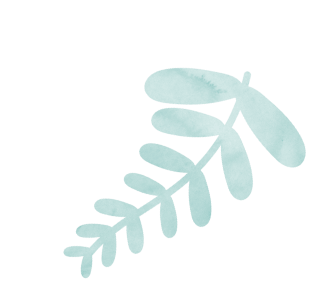
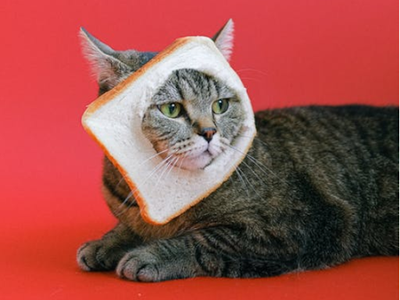
![Associated image for Best food for Ragdoll cats in the UK [Broken Down]](http://untamed.com/cdn/shop/articles/featured_best_food_for_ragdoll_cats_uk_400x300_crop_center.jpg?v=1646818249)
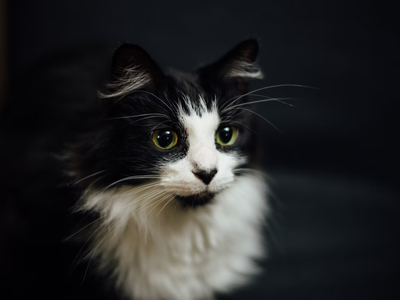
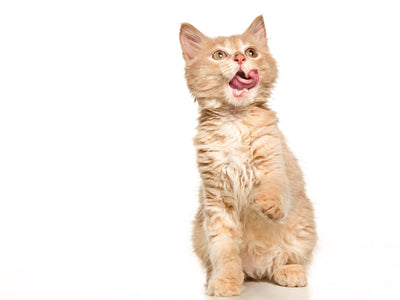
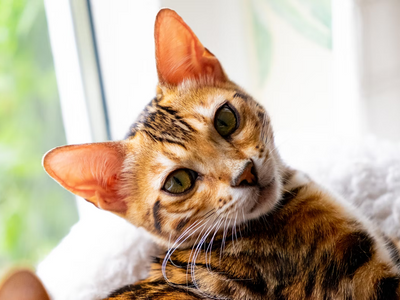
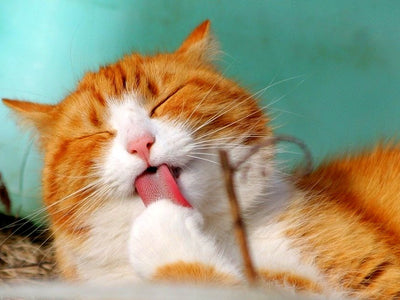
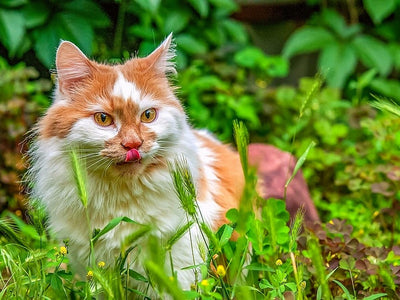
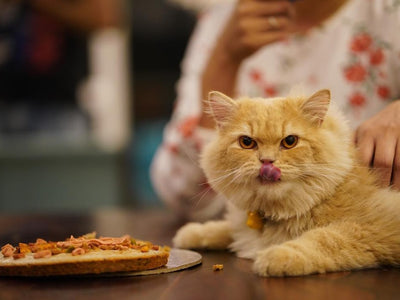
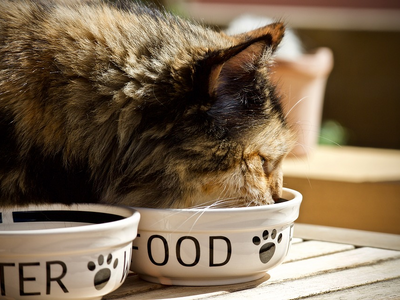
![Associated image for What human food can Sphynx cats eat? [Comprehensive list]](http://untamed.com/cdn/shop/articles/what_human_food_can_sphynx_cats_eat_Featured_400x300_crop_center.jpg?v=1648705074)
